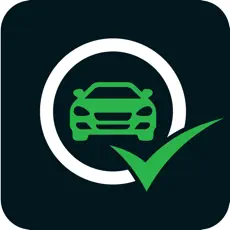Having your car towed can be a frustrating and stressful experience, especially when you’re unsure about how to retrieve it without paying hefty fees. While it might seem like you’re stuck with a large towing bill, there are some strategies you can explore to get your towed vehicle back without paying. In this blog, we’ll guide you through simple and effective ways to get your car back—and we’ll also share some valuable insights on how to avoid towing situations in the first place.
1. Know Your Rights: Research Local Towing Laws
The first step in getting your towed car back is understanding your rights. Every state and city has different laws regarding towing and impound fees. For instance, in some areas, towing companies are required to provide specific documentation about why your car was towed and how much it will cost to retrieve it.
Action Steps:
- Check your city or state’s official website for towing regulations.
- Ensure the tow company follows legal procedures, including notifying you about the towing and providing a receipt for any charges.
2. Review the Towing Notification
In most cases, you should receive a written notice or be able to contact the towing company to understand why your car was towed. If the tow was illegal or done without proper notice, you might be able to challenge the fee.
Action Steps:
- Look for any errors in the towing notification (like wrong dates, incorrect locations, or lack of signage).
- If the tow was unjustified, you may be able to dispute the charges and request your vehicle back without paying.
3. Dispute the Charges with the Towing Company
If you believe your car was wrongfully towed, don’t hesitate to speak directly with the towing company. If you can prove the tow was unjust, the towing fees might be waived or reduced. Common situations for disputes include:
- Improper signage or lack of notification
- Parking violations that were not clearly marked
- Towing done during prohibited hours
Action Steps:
- Prepare any supporting evidence, such as photos of the parking area or receipts that show you were in compliance with the parking rules.
- Politely but firmly request to have the charges reduced or eliminated based on the facts of your case.
4. Check for Insurance Coverage
In some cases, your car insurance policy may cover the cost of towing. This is especially true if the tow was due to an accident or other emergency situation. Contact your insurance company to see if they can help with the towing fees.
Action Steps:
- Call your insurance provider and explain the situation.
- Ask if your policy covers towing and impound fees, especially in cases involving accidents or emergency services.
5. Appeal to the Local Authorities
If you feel that your car was towed unjustly, you can file an appeal with local authorities or a local court. Depending on your area, this may involve submitting paperwork or appearing in court to argue your case. If the court rules in your favor, you might not have to pay for the towing and impound fees.
Action Steps:
- Gather all relevant documentation, including photos, receipts, and any communication with the towing company.
- File your appeal with the appropriate local agency or court.
6. Consider Free Towing Services (In Some Situations)
If you’re facing a dire financial situation or simply cannot afford the fees, you may be able to negotiate with the towing company or local authorities for a payment plan or, in some cases, have the fees waived. Some cities also provide assistance for people who are facing financial hardship.
Action Steps:
- Explain your financial situation to the towing company or local authorities.
- Request a payment plan or ask if any assistance programs are available in your area to reduce or eliminate towing fees.
Avoid Towing Situations in the Future
Preventing your car from getting towed is always better than dealing with the hassle of retrieving it. Here are some simple tips to avoid towing situations altogether:
- Check Parking Signs: Always look for parking restrictions in the area where you leave your car.
- Park Legally: Ensure you’re parking in a designated parking spot and not blocking driveways or fire hydrants.
- Use VINAutoChecker: If you’re buying a used car, it’s important to make sure the vehicle doesn’t have any hidden issues, including past accidents or towing incidents. Using VINAutoChecker can help you make informed decisions when purchasing a used car, and avoid surprises that might lead to future towing incidents.
VINAutoChecker: Make Smart Used Car Purchases
When you’re buying a used car, knowing the vehicle’s full history is crucial. VINAutoChecker provides comprehensive vehicle history reports that include detailed information on past ownership, accidents, damage, and odometer readings. This can help you avoid purchasing a car with hidden problems that might lead to unexpected situations, such as towing.
By checking the vehicle’s history through VINAutoChecker, you can make confident decisions and steer clear of cars that have been involved in multiple accidents or have had multiple owners. This will not only give you peace of mind but also help prevent potential problems down the road.
Conclusion
While getting your car towed can be an annoying and expensive experience, knowing your rights and following the right steps can help you get your vehicle back without paying excessive fees. By reviewing local towing laws, disputing charges when applicable, and checking for insurance coverage, you can often avoid paying unnecessary fees.
And remember, to avoid future towing headaches, use services like VINAutoChecker to check the history of any used cars you’re considering. With detailed reports that include accident history, ownership records, and more, VINAutoChecker helps you buy with confidence and avoid future problems.
Got a towed car? Follow these steps, and with a little persistence, you might be able to recover your vehicle without paying a dime!
